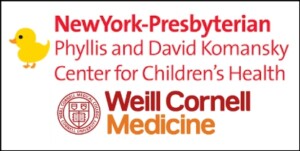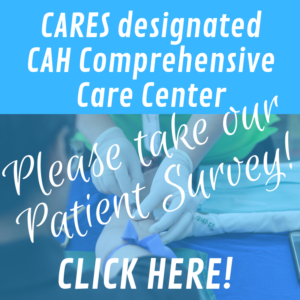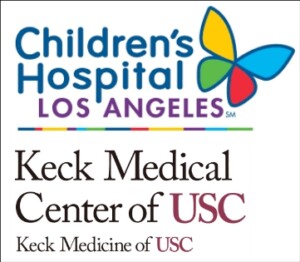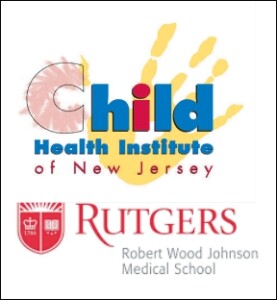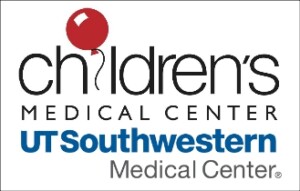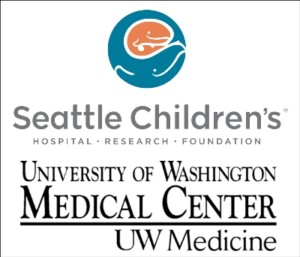What We Do
Centers of Excellence – Comprehensive Care Centers
The CAH Comprehensive Care Center is intended to be a multi-disciplinary team of healthcare professionals who are experts or developing experts in the care of CAH. The goal is to provide excellent care to patients with Congenital adrenal hyperplasia (CAH) from childhood to adulthood, promote research that will improve patient lives, and educate patients, families and other healthcare providers in CAH and its management. There are currently eight (8) Comprehensive Care Centers in the U.S.
-
- New York-Presbyterian/Weill Cornell Medical Center – New York City, New York
- Children’s Hospital Los Angeles/University of California, LA – Los Angeles, California
- Riley Hospital for Children/Indiana University Health – Indianapolis IN
- Rutgers-Robert Wood Johnson Medical School (RWJMS), Child Health Center of New Jersey (CHINJ) – New Brunswick, New Jersey
- UT Southwestern Children’s Medical Center Dallas, Dallas, Texas
- Seattle Children’s Hospital and University of Washington Medical Center, Seattle, WA
- Cook Children’s Health Care System, Fort Worth, TX
- Children’s Hospital of Philadelphia/Penn Medicine, Philadelphia, PA
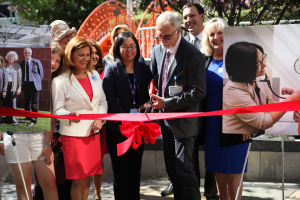
CENTERS OF EXCELLENCE:
Comprehensive Center for Congenital Adrenal Hyperplasia – New York City
The first CARES Foundation-designated Center of Excellence for congenital adrenal hyperplasia, serving patients of all ages from around the world, opened in New York City at the New York-Presbyterian Phyllis and David Komansky Center for Children’s Health Weill Cornell Medical Center in 2013. The team is headed up by Medical Director, Karen Lin Su, M.D., Assistant Medical Director, Oksana Lekarev, M.D. and Surgical Director, Dix P. Poppas, M.D., FAAP, FACS. The Center offers a multi-disciplinary team of experts in the diagnosis and management of CAH for pediatric and adult patients. Services include medical treatment and lifelong follow-up care for patients with classical and non-classical CAH from birth to adulthood; surgical consultations and treatment; transition care for adolescents; psychological support; genetic counseling, prenatal testing, and nutritional support. The Center will also be providing educational programs and conducting research.
Attn: Koree Richardson, Coordinator
New York-Presbyterian/Weill Cornell Medical Center
525 East 68th Street, Box 103
New York, NY 10065
646-962-3442, Option 1
VISIT WEBSITE
Online Second Opinion Service Now Available at New York-Presbyterian/Weill Cornell
If you don’t live close enough for an in-person appointment with one of our Comprehensive Care Center CAH doctors, or are unable to travel there, you can still take advantage of their expertise for help with managing your care. This online service, NYP Second Opinion, involves sending in all of the patient’s medical records (they will aid you in this process) for review by an expert physician (one who specializes in your condition), and then, after reviewing your records, that physician, will get back to you, with a detailed written assessment and list of recommendations. A follow-up for questions and referrals will then follow. The service costs $800, and is not covered by insurance, however, it may be paid through your Flexible Spending or Health Savings Accounts.
CLICK HERE for access to the NYP Second Opinion Service.
TART Program at the Center in New York:
The Institute for Pediatric Urology at the Komansky Center for Children’s Health has established the first program in the country for male patients with classical congenital adrenal hyperplasia. Male individuals with classical CAH may be at higher risk for developing benign tumors in the testicles known as TART. TART stands for testicular adrenal rest tumor. These tumors are caused by adrenal like cells located in the center of the testicle. These tumors remain undetected until they result in pain, infertility or large size. If tumors are allowed to grow for long periods of time (usually years), they can permanently damage the testicles and cause irreversible infertility. If identified early, then additional close follow-up and medical treatment can be very helpful. The best way to find these tumors is by testicular ultrasound; a non-invasive test that allows us to see the inside of the testicle and to determine if a tumor is present. Because these tumors are so hard to identify and if left unchecked, may impact healthy testicle development, our team has established a program for boys with classical CAH. The team in New York begin seeing these boys at 8 years old, performing the necessary tests and then they follow up with these boys every year until the age of 18 repeating these tests to determine if any change has occurred to indicate a tumor is developing. If they identify a tumor, they can develop a treatment plan based on the boy’s age and rate of tumor growth. It is important to stress awareness of this condition and to make sure that boys with CAH are closely monitored.
To learn more about the program, you can call the center at 646-962-2316, or visit the website.
COMPREHENSIVE CARE CENTER FOR CAH AT CHILDREN’S HOSPITAL LOS ANGELES/UNIV OF CALIFORNIA -KECK MEDICAL CENTER – Los Angeles
Opened June 2015. Mitchell Geffner, M.D. is the center’s Co-Medical Director with Mimi Kim, M.D., MSc. Surgical Director is Roger De Filippo, MD. This facility is the first CAH Center of Excellence in the Western United States.
Comprehensive Care Center for CAH –
Children’s Hospital Los Angeles University of California Los Angeles/Keck Medical Center
4650 Sunset Blvd., MS #61 8700 Beverly Blvd.
Los Angeles, CA 90027 Los Angeles, CA 90048
For appointments contact: Janet Guerrero, Comprehensive Care Center Coordinator, 323-361-4630, janguerrero@chla.usc.edu or visit the website at www.chla.org/CAH
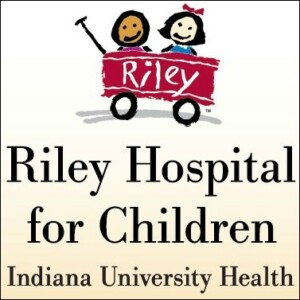 COMPREHENSIVE CARE CENTER FOR CAH – Riley Hospital for Children/ Indiana University Health – Indianapolis IN
COMPREHENSIVE CARE CENTER FOR CAH – Riley Hospital for Children/ Indiana University Health – Indianapolis IN
Medical Director: Erica Eugster, M.D., Associate Medical Director: Todd Nebesio, M.D.
Surgical Director: Richard C. Rink, M.D.
705 Riley Hospital Drive
Indianapolis, IN 46202
Comprehensive Care Center Coordinator – Heather Frady, RN 317-412-1206
VISIT WEBSITE
COMPREHENSIVE CARE CENTER FOR CAH – Rutgers-Robert Wood Johnson Medical School (RWJMS), Child Health Center of New Jersey (CHINJ) New Brunswick, New Jersey
Co-Medical Directors: Ian Marshall, M.D., Ahmed Khattab, M.D.,MSC
VISIT WEBSITE
COMPREHENSIVE CARE CENTER FOR CAH – UT Southwestern Children’s Medical Center Dallas, Dallas, Texas
Medical Director: Perrin C. White, M.D.
For appointments, contact Merritt Lamm or Emily Silva, 214-456-5980
COMPREHENSIVE CARE CENTER FOR CAH – Seattle Children’s Hospital and University of Washington Medical
Center, Seattle, WA
Medical Director: Patricia Y. Fechner, M.D., FAAP, FACE
Co-Surgical Directors: Mark Cain, M.D., FAAP, Margarett Shnorhavorian, M.D.,MPH,FAAP,FACS
VISIT WEBSITE
COMPREHENSIVE CARE CENTER FOR CAH – Cook Children’s Health Care System, Fort Worth, TX
Medical Director: Paul Thornton, M.D.,BCh, MRCPI, DCh
VISIT WEBSITE
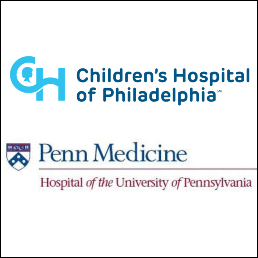
The CHOP CAH Program – Children’s Hospital of Philadelphia, Philadelphia, PA
Director: Maria G Vogiatzi, MD
Associate Director: Julia Kharlip, MD
Pediatric Urologist: Thomas Kolon, MD
Care Coordinator/Educator: Michelle McLoughlin, CPNP
Comprehensive Care Centers Background
CAH is an extremely difficult disorder to understand, diagnose and treat in a comprehensive manner. As noted by a CAH working group:
Despite over 50 years of experience with steroid replacement therapy, the management of congenital adrenal hyperplasia (CAH) remains difficult, and clinical practice varies substantially through the world … (Clayton, et al 2002)
More than five years later, this statement is still true, and a number of factors indicated that the time to address this disparity in care and lack of quality benchmarks is now:
- As diagnosis and clinical care improves, there is a growing population of adolescent and adult patients with CAH. However, at present there are no centers in the United States recognized as specializing in the care of teens and adults with this disorder. (Indeed, there are no established criteria upon which such a claim could currently be made). Clinicians who are less experienced with CAH, or who serve a geographically isolated population, have no recognized “expert”- be this a person or a protocol — to turn to for advice and consultation on the diagnosis and care of their CAH patients. The result is significant disparity in the quality and comprehensiveness of care that patients receive.
- As we enter into the era where long-term follow-up on newborn screening (NBS) is an integral part of the NBS system, comprehensive care centers for lifelong care will become necessary for CAH.
- For the purpose of the NBS system, and any kind of quality assurance, we need to have guidelines upon which to evaluate the effectiveness of long-term follow-up. There also need to be some standards that cut across geographic and regional boundaries in order to compare treatment regimens and practices that lead to better health outcomes.
- One of the goals of long-term follow-up is to create opportunities for clinical and translational research – this requires a large cohort of patients being followed and monitored on a variety of parameters in a longitudinal manner. Under the current model, CAH patients are spread out both geographically and across medical specialists, with no published guidelines for how – or even that—there be a primary clinician overseeing the disparate therapies. Subspecialists need a roadmap for how to communicate with each other in the care of a CAH patient, and there needs to be a master plan as to how individuals should be treated and monitored throughout the life cycle. Thus, the creation of the Centers of Excellence comprehensive care centers for CAH. The care centers in New York, Los Angeles and Indianapolis also offer surgical expertise.
In 2009 CARES Foundation hosted a meeting of the world’s leading clinicians in CAH as well as individuals and families affected by this condition to derive guidelines for the establishment of, and standards for the recognition and maintenance of, comprehensive clinical care centers for the treatment of CAH throughout the life cycle on September 21-22, 2009 in Bethesda, Maryland.
This meeting was supported by funds awarded by The New York-Mid-Atlantic Consortium for Genetic and Newborn Screening Services (NYMAC) and the National Newborn Screening and Genetics Resource Center (NNSGRC), with support from the Health Resources Services Administration (HRSA), US Department of Health and Human Services. The project is endorsed by the Endocrine Society, Lawson Wilkins Pediatric Endocrine Society (LWPES) and the Androgen Excess-Polycystic Ovary Syndrome Society (AE-PCOS).
The Comprehensive Care Centers for CAH were organized under published “Guidelines for the Development of Comprehensive Care Center for CAH” (IJPE2010)

